ME310/SUGARは、京都工芸繊維大学の学生と研究者が、世界の提携大学と協同しグローバル企業から課されたイノベーションの課題に取り組むプログラムです。
スタンフォード大学の機械工学科に
デザイン思考のアプローチを持ち込んだ
授業からはじまったME310/SUGAR
ME310は、企業と協同し実社会さながらの体験をするためのPBL型コースとして、1967年にスタンフォード大学の機械工学科にてスタートしました。当初は工学ベースのプロジェクトが主でしたが、産業ニーズの変化に伴いプロジェクトの焦点も変化してきました。プロダクトが多様化しソフトウェアが日常生活において身近になるにつれて、機械工学系のプロジェクトは分野横断的なものとなったのです。また、近年インターネットがプロダクトやサービス、そしてユーザーを繋ぐようになったことで、プロジェクトピックはプロダクトからシステムへとシフトしました。急速に加速する世界において企業が直面する課題を反映し、プロジェクトピックは柔軟に変化してきたといえるでしょう。
グローバル化が進む世界を反映してプロジェクト参加学生の多様化を促進するために、スタンフォード大学は2000年代中頃、海外の大学との協同をはじめました。いくつかの実験的プロジェクトが実施され、2カ国の大学による9ヶ月間のコラボレーションが実施されたのです。試行錯誤が伴う実験的なプロジェクトではあったものの最終成果物は高く評価され、プロジェクトは成功を収めます。そして数年後には、全てのプロジェクトが2カ国の大学の学生が協同するプログラムとなりました。その後も国際的なネットワークの拡大に伴い、スタンフォード大学に端を発したイノベーションアプローチ「デザイン思考」は世界へと広く波及していきました。
世界20カ国以上の教育ネットワークに
日本から唯一継続参加しているD-lab
SUGARネットワークは、ME310プロジェクトに参加する世界各国の大学によって2008年に組織されました。そして今や五大陸にまたがる20以上の大学が参加するネットワークへと成長しています。毎年行われるグローバル・キックオフ・ワークショップや、革新的なアイディアやプロトタイプが発表されるシリコンバレーでの最終プレゼンテーション(EXPE)には、世界各地から300人以上の学生や教員が集まります。
京都工芸繊維大学は、2009年にアアルト大学と協同で取り組んだKemppi(フィンランド)とのプロジェクトで初めてネットワークに参加しました。数年間のアアルト大学との協同を経て、2014年のKYOTO Design Lab[D-lab]設立とともにプログラムは拡大します。2015年以降も京都工芸繊維大学は世界中の様々な大学や企業と共に数多くのプロジェクトに取り組んでいます。
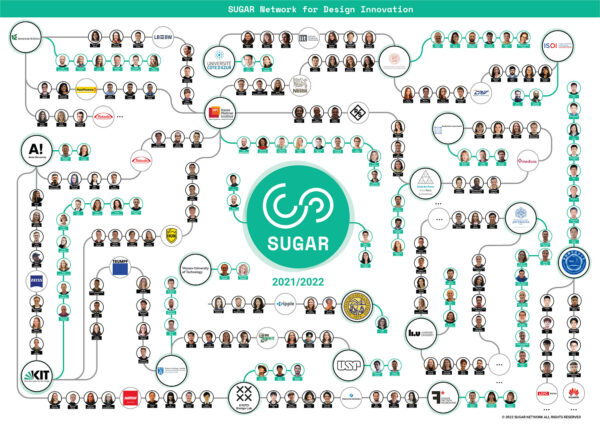
ME310/SUGARネットワーク図
デザイン思考による
イノベーションの方法論とは
革新的なプロダクトやシステムを作るためのME310/SUGARのアプローチは、何十年もの間スタンフォード大学で発展し、デザイン思考として広く知られるようになりました。デザイン思考の核となる要素は次の3つです。
- ヒューマンニーズとコンテクストへの深い理解
- ラピッドプロトタイピングと実験の反復
- チームに最善の結果をもたらすイノベーティブなカルチャー
綿密な計画と慎重な遂行を重視する従来の製品開発モデルとは異なり、ME310/SUGARは状況に応じた臨機応変な対応を重視しています。そのためプロジェクトではテーマの異なるプロトタイピングをマイルストーンとして設定し、学生をデザイン思考のエキスパートに導きます。
京都工芸繊維大学では長年の経験を通じて、デザイン思考の文化や考え方を日本の環境や大学のカリキュラムに適合させてきました。プロジェクトに参加する学生チームは、教員とKYOTO Design Labコミュニティの双方からサポートを得て、海外の学生とより良いコラボレーションを実現することができます。
これまでのプロジェクトより
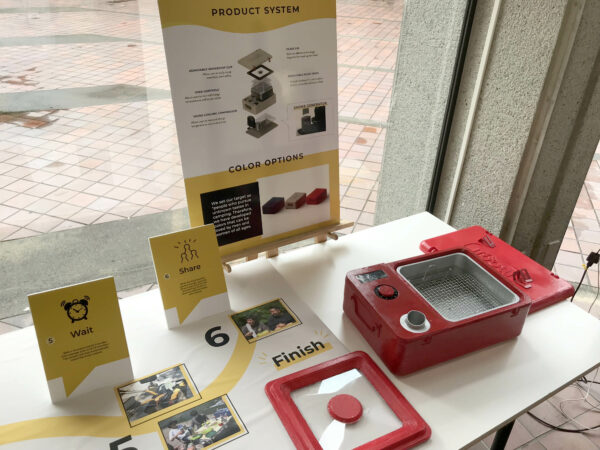
Mogii Super Cold Smoking at -10℃ (2020-2021)
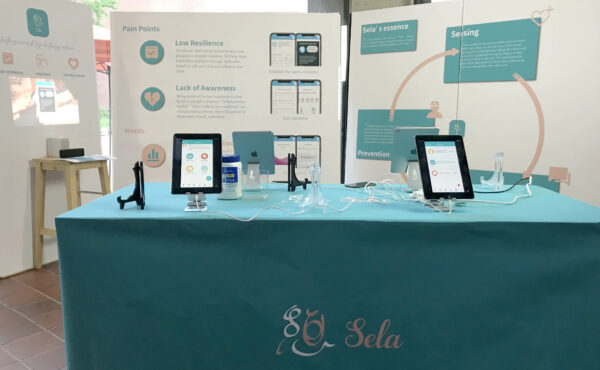
Sela Sensing and preventing mental disorders through networks (2020-2021)

Kansroo Farm monitoring robot and system (2019-2020)
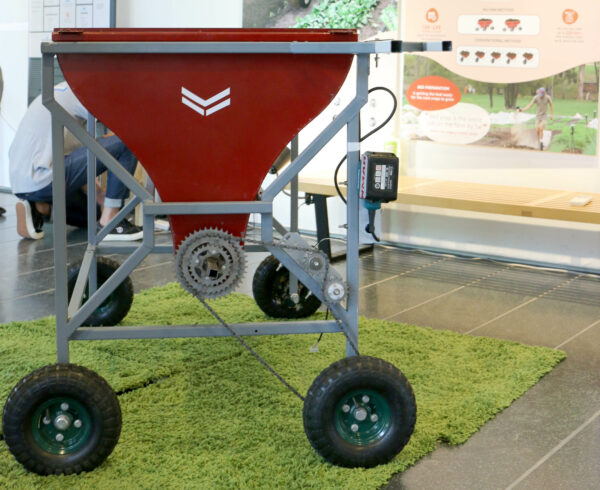
NU-TAN Crop Bed Preparation for Organic Farmers (2018-2019)
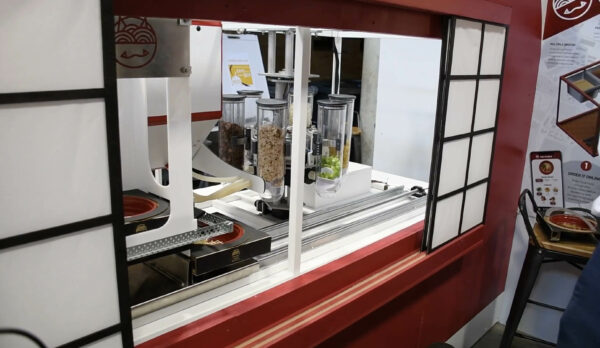
ONI RAMEN Ramen Making Module (2018-2019)
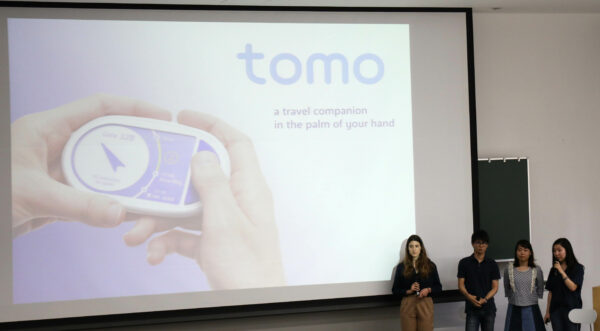
ANA Tomo An Airport Companion Device (2017-2018)
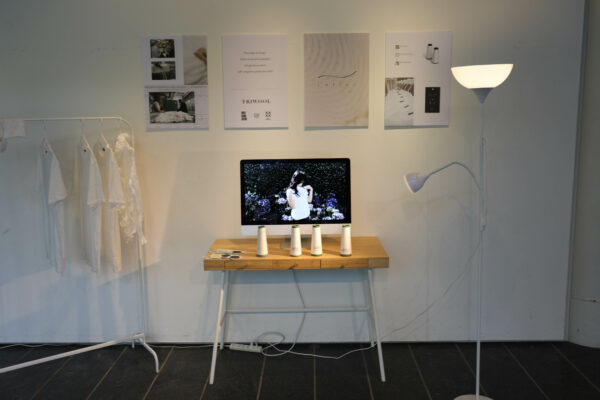
Infini Creating Sustainable and Environmentally Friendly Fast Fashion (2017-2018)
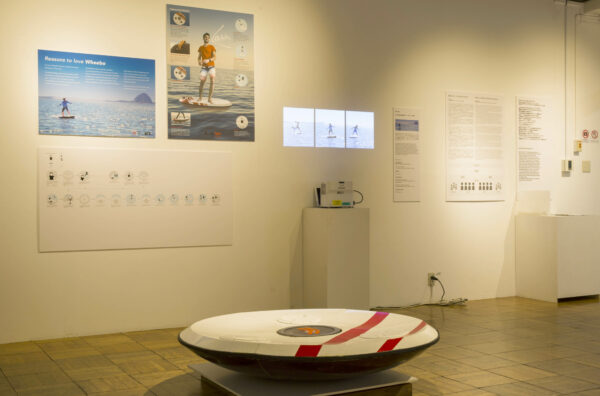
Wheebo Exciting and Enjoyable water-based Experience. (2016-2017)
担当教員略歴
スシ・スズキ 准教授 京都工芸繊維大学 未来デザイン・工学機構
スタンフォード大学のME310プログラムの卒業生であり、BMWでのキャリアや2004年から2005年にかけてはミュンヘン工科大学で教鞭をとる。翌年、ME310プログラムのティーチング・アシスタントとして学生チームのサポートを開始。2007年から2009年にかけてはスタンフォード大学のプログラムにてエグゼクティブ・ディレクターを務め、企業や他大学とのプロジェクトマネジメントに携わる。2009年にはフランスでd.school Parisの設立をサポートし、教育法とその哲学を伝導。2015年より京都工芸繊維大学 KYOTO Design Labにて国際的なプログラムに携わる。アカデミアでの経歴に加え、メルセデス・ベンツにてシステムエンジニアを、パナソニックにてコンセプト・デベロパーを務めたほか、日本やドイツでスタートアップに携わった経験を持ち、起業家支援プログラム「Kyoto Startup Summer School」も主導している。
多田羅景太 助教 京都工芸繊維大学 デザイン・建築学系
京都工芸繊維大学卒業後、デンマーク政府奨学金留学生としてデンマークデザインスクールに留学。ポール・ケアホルム氏に師事したロアルド・スティーン・ハンセン氏の下で家具デザインを学ぶ。プロダクトデザイナーとして手掛けたキッズ用チェア「CRESCENT」が平成29年度意匠学会作品賞を受賞しているほか、ドキュメンタリー映画「ボーエ・モーエンセン、デザイン・フォー・ライフ」の日本語訳、北欧デザインに関する展覧会の監修も手掛ける。京都工芸繊維大学では2010年よりME310/SUGARに携わり、2014年のKYOTO Design Lab設立以降、スシ・スズキと共に教員チームのメンバーとしてプログラムを支えてきた。著書に「流れがわかる! デンマーク家具のデザイン史:なぜ北欧のデンマークから数々の名作が生まれたのか」(発行:誠文堂新光社)がある。
ME310/SUGARプログラムの歴史、過去の事例、企業向け情報など、詳しくは下記をご覧ください。
» ME310/SUGAR website
プロジェクトに関するお問い合わせやご質問は、ME310/SUGARティーチングチームまでお願いします。
日本語:多田羅景太(たたら けいた) (tatara@kit.ac.jp)
英 語:スシ・スズキ(sushi@kit.ac.jp)
ME310/SUGAR is a program where students and researchers from the Kyoto Institute of Technology work together with leading international universities to tackle innovation challenges posed by global corporations.
History about ME310
The ME310 program at Stanford University was founded in 1969 in the mechanical engineering department as a project-based course for students to work with corporations to gain real world experiences. Initially the projects were engineering oriented, but throughout the years, the focus has shifted as the needs of industries have changed. Pure mechanical engineering projects became more multidisciplinary as products became diversified and software became increasingly involved in our everyday lives. The last decade has seen project topics shift from products to systems as the internet enabled connections between products, services, and people. Topics have also become more open-ended reflecting the difficulty of innovation that corporations are facing in this rapidly accelerating world.
During the mid-2000s, in response to the globalized world, Stanford University started experimenting with foreign universities to diversify the students on the project. In some test projects, students from two different universities collaborated for the nine months of the projects. While early growing pains were experienced, the experiments proved to be a success as the quality of project results increased and in several years, all projects were undertaken by students from two different countries. Furthermore, the international expansion helped spread the Stanford approach to innovation, now known as “design thinking,” to spread globally as partner universities extended the network with new project partnerships.
The Kyoto Institute of Technology first joined the network with the help of Aalto University in 2009, conducting their first project with the Finnish company Kemppi. After several years of working with Aalto, the program grew with the establishment of the KYOTO Design Lab and increased resources to carryout international projects. Since 2015, the Kyoto Institute of Technology is conducting multiple projects with various universities and companies around the world.
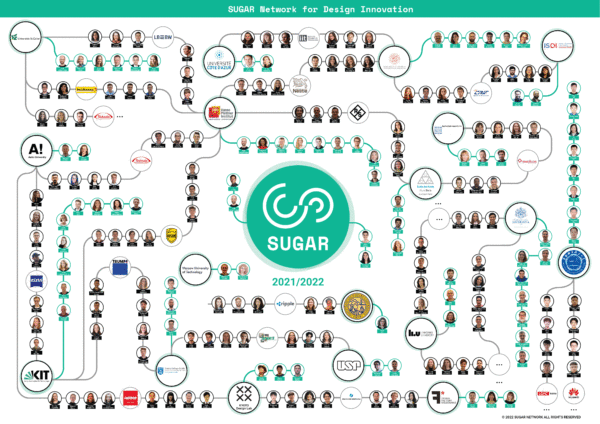
SUGAR Network Map
International Network “SUGAR Network”
The SUGAR Network was established in 2008 by Stanford University and universities that have collaborated together on ME310 projects. Since its inception, the network has grown considerably and now included over 20 universities in 5 continents. The annual kickoff workshop brings together over 300 students and faculty, and the final exposition in Silicon Valley an incredible exhibition of innovative ideas and prototypes from around the world. Kyoto Institute of Technology is the only active Japanese university in the Network.
The Design Thinking Approach
The ME310/SUGAR approach to creating innovative products and systems has been developed at Stanford University for several decades and has now become known as design thinking. At the heart of design thinking are three core elements:
- Deep understanding of human needs and context
- Rapid prototyping, experimentation, and iteration
- Innovative culture that brings the best out of teams
Unlike traditional product development models that focus heavily on planning and careful execution, ME310/SUGAR understands that innovation is full of ambiguity that requires agile thinking. The program incorporates various prototyping milestones to guide students as they become experts in design thinking.
Through many years of experience, the Kyoto Institute of Technology has successfully integrated design thinking into the Japanese context and curriculum. Students teams are given the support from both the faculty and the larger KYOTO Design Lab community in order to better collaborate with international students.
Past Projects

Mogii Super Cold Smoking at -10℃ (2020-2021)

Sela Sensing and preventing mental disorders through networks (2020-2021)

Kansroo Farm monitoring robot and system (2019-2020)

NU-TAN Crop Bed Preparation for Organic Farmers (2018-2019)

ONI RAMEN Ramen Making Module (2018-2019)

ANA Tomo An Airport Companion Device (2017-2018)

Infini Creating Sustainable and Environmentally Friendly Fast Fashion (2017-2018)

Wheebo Exciting and Enjoyable water-based Experience. (2016-2017)
Kyoto Institute of Technology Teaching Team
Sushi Suzuki
Associate Professor
Center for the Possible Futures
Kyoto Institute of Technology
Sushi is an alumnus of the ME310 program at Stanford University having worked with BMW and Technical University of Munich in 2004-2005. Year later, he was the teaching assistant for the program helping student teams develop innovative concepts. From 2007 to 2009, he was the executive director for the program at Stanford University, coordinating projects with companies and other universities. In 2009, he helped start what has now become d.school Paris and brought the pedagogy and Philosophy to France. Sushi joined the KYOTO Design Lab in 2015 to develop more international programs at the Kyoto Institute of Technology. In addition to working in academia, Sushi has worked at the Mercedes Benz as a systems engineer and Panasonic as a Concept Developer as well as being involved in startups in Germany and Japan.
Keita Tatara
Assistant Professor
Department of Design and Architecture
Kyoto Institute of Technology
After graduating from Kyoto Institute of Technology, studied at the Danish Design School as a Danish Government Scholarship student. He studied furniture design under Roald Steen Hansen, who studied under Poul Kjærholm. As a product designer, he worked on the children’s chair “CRESCENT,” which won The Japan Society of Design in 2017. He also translated the documentary film “Børge Mogensen: DESIGNS FOR LIFE” into Japanese and supervised exhibitions related to Scandinavian design.
Keita has been involved with ME310/SUGAR since 2010 at the Kyoto Institute of Technology. Since the KYOTO Design Lab was established in 2014, he has been supporting the program with Sushi Suzuki as a member of a teaching team. Keita has a background as a product designer, especially for interior products. He is the author of “History of Danish Furniture Design” (published by SEIBUNDO SHINKOSHA).
For more information regarding the ME310/SUGAR program including its history originating from Stanford University, past case studies, and further information for companies, visit the website at me310kyoto.org
For project inquiries and any other questions, please contact the ME310/SUGAR Teaching Team:
Japanese: Keita Tatara (tatara@kit.ac.jp)
English: Sushi Suzuki (sushi@kit.ac.jp)
